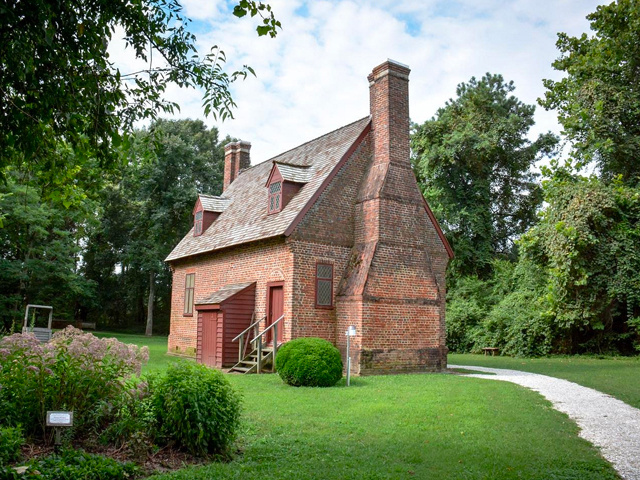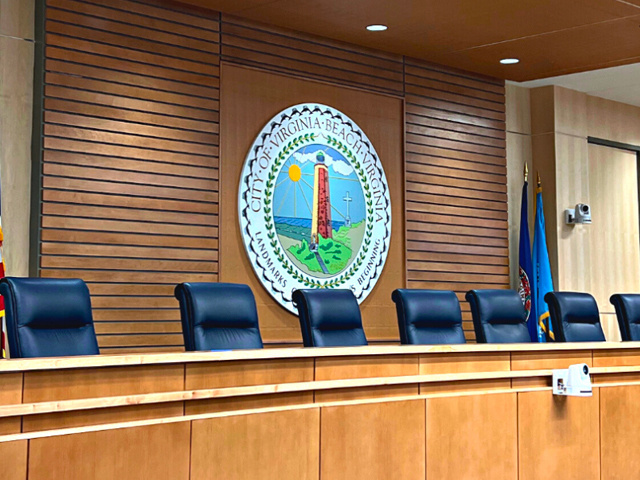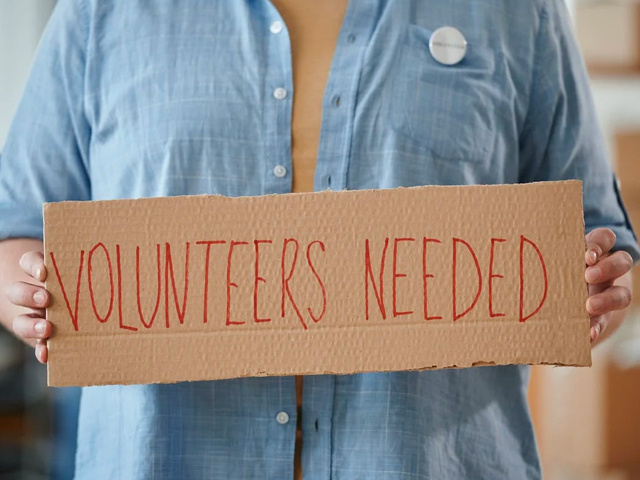Be In The Know
April Showers Bring Mosquitoes

Each year, Virginia Beach Public Works crews in conjunction with the Department of Public Health wage war against the deadliest creature on the planet – the mosquito. They may be tiny, but these pesky insects are responsible for around 725,000 deaths per year worldwide. By keeping the mosquito population in check, we can help combat not only the annoying bites and itchy welts, but the diseases they spread such as:
Locally Acquired
- Eastern Equine Encephalitis
- Jamestown Canyon Virus
- La Crosse Encephalitis
- St. Louis Encephalitis
- West Nile Virus
Imported/Travel Associated
Mosquito season in Virginia ranges from early May to as late as early November and is at its peak in July and August. Believe it or not, we have about 60 different types of mosquitoes here in Virginia, each with their own different habitats and behaviors. This poses a challenge to controlling their populations, but the City has a battle plan for keeping the tiny enemy at bay.
What Is the City Doing?
The Public Works Mosquito Control Bureau works to reduce mosquito populations throughout the city in several ways, specifically source reduction, public education, tracking adult mosquito populations and testing both mosquitoes and sentinel chicken blood for the presence of mosquito-borne diseases.
You may be wondering what a sentinel chicken is. These humble birds are actually the unsung heroes of mosquito control. They are placed throughout the City and exposed to mosquito bites and the diseases they may carry. Each week (during mosquito season), mosquito control staff draw their blood to test for the presence of antibodies to West Nile Virus and Eastern Equine Encephalitis.
These feathered frontline workers are clucking good at their job and don’t get sick from mosquito-borne diseases. Any positive findings will lead to increased inspections and mosquito-killing measures in the area they are used to monitor.
Staff members also trap mosquitoes throughout the city, and analyze their numbers and the species present to determine both the best tactics to combat further population growth and areas to concentrate treatment efforts. The City employs the following control measures:
- Ditch Maintenance: From November through April, crews provide ditch maintenance cleaning services to reduce the amount of standing water for mosquitoes to lay eggs. Crews also go out on rainy summer days to remove blockages from ditches to keep water flowing and reduce breeding. This is a chemical-free means of mosquito control.
- Larvicide: May through October, day-time mosquito control personnel go to known breeding sites throughout the City and treat standing water with materials that kill the insects before they get a chance to mature, fly and begin biting. Each season, crews treat about 1,000 acres of standing water against immature mosquitoes.
- Spraying: During mosquito season, night-time staff apply pesticides from machines mounted to pickup trucks in areas of the City where there are large populations of adult mosquitoes. Known as “adulticiding,” it is a late-stage effort to control adult mosquitoes that manage to escape previous larviciding efforts. Throughout a single summer, the Bureau’s personnel will perform treatments on 500,000 to 700,000 acres of the City.
To learn where nighttime mosquito spraying will occur, call (757) 385-1590 (updated daily at 3 p.m.).
Request an Annual Yard Inspection and Treatment Service
Each mosquito season, Virginia Beach households may request a yard inspection service from the Mosquito Control Bureau. Simply call (757) 385-1470 to schedule. This service involves inspecting the yard, educating about breeding sites on the property and a barrier spray treatment if adult mosquitoes are found. Residents will be required to provide a contact name, address and telephone number when calling.
Consent to enter private property will have to be signed by the property owner or a tenant over the age of 18 prior to any barrier application. When you are contacted to schedule your yard treatment, ensure that you choose a time when you will be home. You will sign the consent form at that time. This barrier treatment service is for one application between May and October only.
Mosquito Control also works closely with the Virginia Beach Department of Public Health to keep the public informed about any human cases of mosquito-borne disease activity. If human cases are found the two organization work together to notify vulnerable populations, release public service announcements, and focus control efforts to limit further exposure.
What Can You Do to Help?
- Check your yard twice a week and tip and toss (or tightly cover) anything that can hold water such as the lids of trash cans and recycling bins, pet bowls, flowerpots, etc.
- Remove old tires, pots or toys from your yard that can collect water.
- Empty bird baths or treat with larvicide.
- Clean roof gutters and downspout screens.
- Eliminate standing water on flat roofs, boats, and tarps.
- Clear obstructions in ditches so they flow and drain. Fill in puddles with soil, or a mixture of sand and gravel, or dig drainage ditches to drain puddles.
- If puddles or ditches cannot be drained or filled in, treat standing water with mosquito larvicides (dunks or granules) that can be purchased at any hardware store.
- Keep the yard clean – mosquitoes (and ticks) love to hide in tall grass, weeds, and piles of leaves, so regularly mowing the lawn, trimming shrubs, and raking leaves will help eliminate attractive habitats.
Protect Yourself and Your Household
- Use an EPA-registered Insect Repellent.
- When outdoors, use insect repellent containing either DEET, picaridin, IR 3535, 2-undecanone, or oil of lemon eucalyptus on skin or clothing. Always follow instructions on the product label.
- The insect repellent "permethrin" can also be used on clothing, shoes, bed nets, and camping gear and remain active after several washes. Be sure to apply it to clothing a few days before to allow for proper drying.
- Application for kids:
- Oil of lemon eucalyptus and para-menthane-diol should never be used for children under three years of age.
- Do not use insect repellent on babies under two months old.
- The American Academy of Pediatrics recommends that parents and caretakers only use products containing no greater than 30% DEET on children.
- Wear loose-fitting, long-sleeved shirts and long pants in light colors. Mosquitoes are attracted to dark colors and wearing lighter colors has the added benefit of making it easier to spot any ticks on your clothing.
- Keep mosquitoes out of the home. Install and utilize and/or repair screens on doors and windows to reduce the chance that mosquitoes will enter your home.
For more information, visit the CDC’s website on mosquitoes and Virginia Department of Health's frequently asked questions about mosquitoes.
Contact Information
Contact Information
Keep Reading
See All Posts
January 13, 2026
Does Your Business Need a Makeover? Here Are Two Virginia Beach Grant Programs That Can Help.
-
Calendar News Blog Hot Topics Multimedia Social Media Mobile Apps










